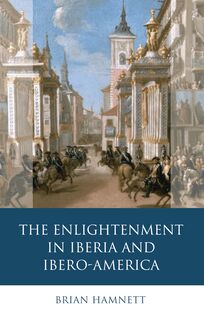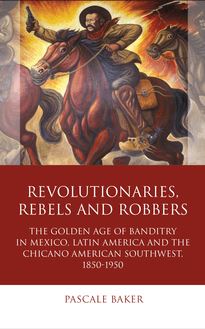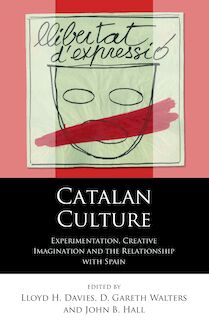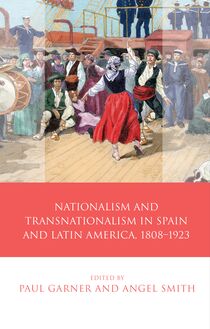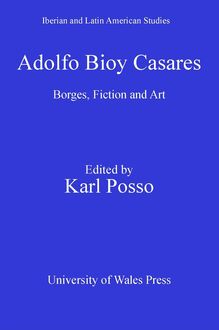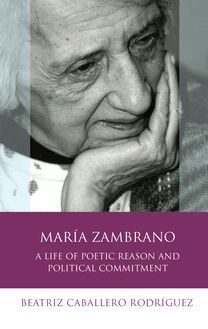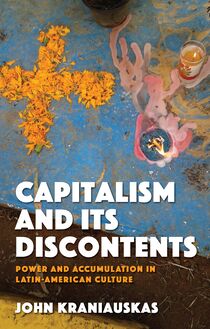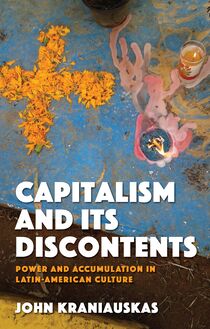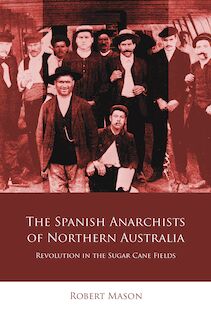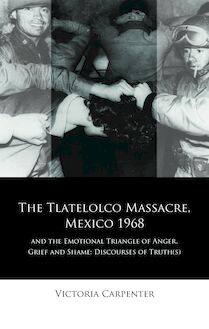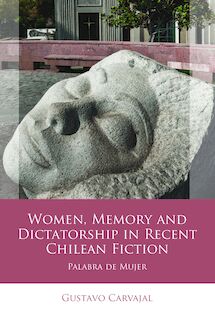-
 Univers
Univers
-
 Ebooks
Ebooks
-
 Livres audio
Livres audio
-
 Presse
Presse
-
 Podcasts
Podcasts
-
 BD
BD
-
 Documents
Documents
-
- Cours
- Révisions
- Ressources pédagogiques
- Sciences de l’éducation
- Manuels scolaires
- Langues
- Travaux de classe
- Annales de BEP
- Etudes supérieures
- Maternelle et primaire
- Fiches de lecture
- Orientation scolaire
- Méthodologie
- Corrigés de devoir
- Annales d’examens et concours
- Annales du bac
- Annales du brevet
- Rapports de stage
La lecture à portée de main
Vous pourrez modifier la taille du texte de cet ouvrage
Découvre YouScribe en t'inscrivant gratuitement
Je m'inscrisFractal Families in New Millennium Narrative by Afro-Puerto Rican Women , livre ebook
Découvre YouScribe en t'inscrivant gratuitement
Je m'inscrisEn savoir plus
Vous pourrez modifier la taille du texte de cet ouvrage
En savoir plus

Description
Since 2007, Afro-Puerto Rican women have been revising the foundational myths of the island and the diaspora to create a new vision of family as a national allegory that includes powerful Black protagonists. Novelists Mayra Santos-Febres and Dahlma Llanos-Figueroa tell the diaspora’s history, beginning with trans-Atlantic slavery. Santos-Febres’s allegories use sadomasochism and healing in the novels Fe en disfraz and La amante de Gardel. Short story writers Arroyo Pizarro’s las Negras and Yvonne Denis-Rosario’s Capá prieto chronicle the struggle to create and preserve an empowering history of slavery and Black people on the island and in the diaspora. Llanos-Figueroa’s Daughters of the Stone envisages a sugar plantation in which Afrodescendants are free and respected. They remake the ‘great Puerto Rican family’ to give greater agency to Afro-Puerto Ricans and include the diaspora in a ‘fractal family’. While liberating, these novels also depict the traumas wrought by both the maintenance and the dissolution of patriarchal, heteronormative, colonial and racist structures.
Introduction: Fractal Families
Chapter One: Becoming Family: Mayra Santos Febres’s Fe en disfraz and La amante de Gardel
Chapter Two: Yolanda Arroyo Pizarro: Cimarronas, Love and Breaking the Silence
Chapter Three: Yvonne Denis-Rosario: Fathers, Mothers, Fractals and Writing
Chapter Four: Oshun and the Palenque-Plantation in Daughters of the Stone
Conclusion: Afro-Borinquén Today and Tomorrow
Appendix: Author Interviews
Notes
Glossary of Terms
Works Cited
Sujets
Informations
| Publié par | University of Wales Press |
| Date de parution | 15 novembre 2022 |
| Nombre de lectures | 0 |
| EAN13 | 9781786839121 |
| Langue | English |
Informations légales : prix de location à la page 0,4100€. Cette information est donnée uniquement à titre indicatif conformément à la législation en vigueur.
Extrait
IBERIAN AND LATIN AMERICAN STUDIES
Fractal Families in New Millennium Narrative by Afro-Puerto Rican Woman
Series Editors
Professor David George (Swansea University)
Professor Paul Garner (University of Leeds)
Editorial Board
Samuel Amago (University of Virginia)
Roger Bartra (Universidad Autónoma de México)
Paul Castro (University of Glasgow)
Richard Cleminson (University of Leeds)
Catherine Davies (University of London)
Lloyd H. Davies (Swansea University)
Luisa-Elena Delgado (University of Illinois)
Maria Delgado (Central School of Speech and Drama, London)
Will Fowler (University of St Andrews)
David Gies (University of Virginia)
Gareth Walters (Swansea University)
Duncan Wheeler (University of Leeds)
Other titles in the series
Carmen Martín Gaite: Poetics, Visual Elements and Space Ester Bautista Botello
The Spanish Anarchists of Northern Australia: Revolution in the Sugar Cane Fields Robert Mason
Paulo Emilio Salles Gomes: On Brazil and Global Cinema Maite Conde and Stephanie Dennison
The Tlatelolco Massacre, Mexico 1968, and the Emotional Triangle of Anger, Grief and Shame: iscourses of Truth(s) Victoria Carpenter
The Darkening Nation: Race, Neoliberalism and Crisis in Argentina Ignacio Aguiló
Catalan Culture: Experimentation, creative imagination and therelationship with Spain Lloyd Hughes Davies, J. B. Hall and D. Gareth Walters
IBERIAN AND LATIN AMERICAN STUDIES
Fractal Families in New Millennium Narrative by Afro-Puerto Rican Women
Palabra de Mujer
JOHN T. MADDOX IV
© John T. Maddox IV, 2022
All rights reserved. No part of this book may be reproduced in any material form (including photocopying or storing it in any medium by electronic means and whether or not transiently or incidentally to some other use of this publication) without the written permission of the copyright owner. Applications for the copyright owner’s written permission to reproduce any part of this publication should be addressed to the University of Wales Press, University Registry, King Edward VII Avenue, Cardiff CF10 3NS.
www.uwp.co.uk
British Library CIP
A catalogue record for this book is available from the British Library.
ISBN 978-1-78683-910-7
e-ISBN 978-1-78683-912-1
The right of John T. Maddox IV to be identified as author of this work has been asserted in accordance with sections 77 and 79 of the Copyright, Designs and Patents Act 1988.
The publisher has no responsibility for the persistence or accuracy of URLs for any external or third-party internet websites referred to in this book, and does not guarantee that any content on such websites is, or will remain, accurate or appropriate.
Contents
Series Editors’ Foreword
Acknowledgements
Introduction: Fractal Families
1 Becoming Family: Mayra Santos Febres’s Fe en disfraz and La amante de Gardel
2 Yolanda Arroyo Pizarro: Cimarronas , Love and Breaking the Silence
3 Yvonne Denis-Rosario: Fathers, Mothers, Fractals and Writing
4 Oshun and the Palenque -Plantation in Daughters of the Stone
Conclusion: Afro-Borinquén Today and Tomorrow
Appendix: Author Interviews
Notes
Glossary of Terms
Works Cited
Series Editors’ Foreword
Over recent decades the traditional ‘languages and literatures’ model in Spanish departments in universities in the United Kingdom has been superseded by a contextual, interdisciplinary and ‘area studies’ approach to the study of the culture, history, society and politics of the Hispanic and Lusophone worlds – categories that extend far beyond the confines of the Iberian Peninsula, not only in Latin America but also to Spanish-speaking and Lusophone Africa.
In response to these dynamic trends in research priorities and curriculum development, this series is designed to present both disciplinary and interdisciplinary research within the general field of Iberian and Latin American Studies, particularly studies that explore all aspects of Cultural Production (inter alia literature, film, music, dance, sport) in Spanish, Portuguese, Basque, Catalan, Galician and indigenous languages of Latin America. The series also aims to publish research in the History and Politics of the Hispanic and Lusophone worlds, at the level of both the region and the nation-state, as well as on Cultural Studies that explore the shifting terrains of gender, sexual, racial and postcolonial identities in those same regions.
Acknowledgements
I wish to thank the authors I study in this book, all of whom were gracious enough to sit down with me to talk about their work. Likewise, I wish to thank scholarly pioneers Marie Ramos Rosado and María Elba Torres Muñoz for their illuminating interviews. The University of Alabama at Birmingham supported my research with a CAS Dean’s Humanities Grant and a Faculty Development Grant. John Moore and Charly Verstraet made important observations. Elena Deanda-Camacho, Rosemary Feal, Earl Fitz, Nicholas Jones, Ineke Phaf-Rheinburger, William Luis, Megan Jeanette Myers, Thomas Stephens and Benigno Trigo shaped important parts of this book through generous and careful readings. Thanks to Edward Friedman for his help with Juliet of the Tropics ( ‘La cuarterona’ ). I am grateful to Don Goyo Acevedo, George Meléndez, Reinaldo Román, Mónica Ruiz and Laura Robledo for making Puerto Rico an important part of my life. Thank you to my father, J. Thomas Maddox III, for teaching me to value education, and obrigado to my wife Luciana Silva for her constant support and insightful questions. Regina and Joyce Maddox and my sisters Kay and Vicki showed me the importance of motherhood.
Introduction
Fractal Families
‘racismolengua’ (a María Reinat Pumarejo)
‘racismolengua’ (for María Reinat Pumarejo)
nuestro indiscutible legado racial
our inarguable racial legacy
nuestro esquema racial
our racial schema
lo negro es lo perverso
blackness is the perverse
lo oscuro
the obscure
lo malo
the bad
lo vergonzoso
the shameful
en cambio, lo blanco es santo
by contrast, whiteness is holy
inmaculado
immaculate
benevolente
benevolent
se denigra y no se degrada
it is denigrated and it is not degraded
se desprestigia
it is discredited
se mancha
it is stained
se humilla
it is humiliated
enblanquecidos nos superamos, nos elevamos
by whitening ourselves we overcome ourselves, we elevate ourselves
engrandecemos cualquier gesta con la blanquicidad
we aggrandise any exploit with whiteness
el negro de alma blanca
the Black man with a white soul a little
la mentirilla blanca
white lie
crimen de cuello blanco
white collar crime
‘echar mano blanca’
‘white magic’
ennegrecidos nos degradamos, somos escoria
when darkened we are degraded, we are filth
la negra maldad de Rafael Hernández y su ‘Preciosa’
the black evil of Rafael Hernández and his ‘Preciosa’
palabras que dan latigazos
words like lashes
palabras que carimban
words that brand us
negro día
black day
alma negra
black soul
lista negra
black list
la oveja negra de la familia
The black sheep of the family
las aguas negras
black waters
el mercado negro
black market
blackmail
blackmail
negra intención
black intentions
negro destino
black destiny
negrito
negrito
negra linda
Good-looking Black woman
negra inteligente
Smart Black woman
Ofendemos inconcientemente
We unconciously offend
pero ofendemos igual
but we still offend
Reciclamos el racismo
We recycle racism
lo perpetuamos
we perpetuate it
(Arroyo Pizarro, Blancoides 43–6)
This 2018 poem by one of the up-and-coming Black writers of Puerto Rico, Yolanda Arroyo Pizarro, exemplifies the recent rise of an Afrodescendant literature on the island and in the diaspora. Its title and thematics show the importance of language in creating and combating racism. The dedication to a Puerto Rican Black feminist who lived on the mainland for many years, Reinat Pumarejo, shows the transnational nature of Afro-Puerto Rican literature and the importance of anti-racist activism to its emergence. Her analysis of unconscious racism on the island, which communicates the general feeling of ostracisation on the ‘Charming Island’ more than the actual etymology of the terms, shows that oppression can take both subtle and not-so-subtle forms. Her love for the archipelago is evident in her allusion to ‘Preciosa’ by the ‘Jibarito’, an unofficial national anthem for Borinquén (Ayala and Bernabe 167). The song romanticises the island’s Spanish and Taíno histories, but it elides Black influence. It is focused on the tirano (‘tyrant’) whose negra maldad (‘black wickedness’) disrupts the harmony of the edenic island. Arroyo Pizarro, like the other authors of this book, evokes the past of enslavement that created the symbolic order in which she moves as an Afro-Boricua poet: words become whiplashes and sizzling slave brands, not only of the past but of today, every day. Black people are branded as ‘perverts’, hypersexualised and pathologised, just as the LGBTQ+ minority is labelled. Arroyo Pizarro’s queer identity has no doubt influenced her recognition of the intersecting oppressive systems that have shaped her lived experience and her poetry. While the outside world may see her and her work as ‘negroide’, inferior to dominant society, a phenomenon she lampoons in her book title Blancoides (2018), she presents herself as a ‘negra inteligente’ who even has a Technology, Education and Design Talk (‘Y tu abuela’). She invokes the tradition of Ismael Rivera, who, in 1978, recorded an ode to black Puerto Ricans, ‘Las caras lindas (de mi gente negra)’ (‘The Beautiful Faces [of My Black People]’) and to which she dedicated a book of narrative and drama, Las caras lindas , in 2020. Her pride in her Blackness, represented by the affectionate – or insulting, depending on the relationship – term negrito , is evident not only in her work but in that of several Puerto Rican authors of the new millennium. While the Caribbean island – one third of the Hispanic Antilles – has often
-
 Univers
Univers
-
 Ebooks
Ebooks
-
 Livres audio
Livres audio
-
 Presse
Presse
-
 Podcasts
Podcasts
-
 BD
BD
-
 Documents
Documents
-
Jeunesse
-
Littérature
-
Ressources professionnelles
-
Santé et bien-être
-
Savoirs
-
Education
-
Loisirs et hobbies
-
Art, musique et cinéma
-
Actualité et débat de société
-
Jeunesse
-
Littérature
-
Ressources professionnelles
-
Santé et bien-être
-
Savoirs
-
Education
-
Loisirs et hobbies
-
Art, musique et cinéma
-
Actualité et débat de société
-
Actualités
-
Lifestyle
-
Presse jeunesse
-
Presse professionnelle
-
Pratique
-
Presse sportive
-
Presse internationale
-
Culture & Médias
-
Action et Aventures
-
Science-fiction et Fantasy
-
Société
-
Jeunesse
-
Littérature
-
Ressources professionnelles
-
Santé et bien-être
-
Savoirs
-
Education
-
Loisirs et hobbies
-
Art, musique et cinéma
-
Actualité et débat de société
- Cours
- Révisions
- Ressources pédagogiques
- Sciences de l’éducation
- Manuels scolaires
- Langues
- Travaux de classe
- Annales de BEP
- Etudes supérieures
- Maternelle et primaire
- Fiches de lecture
- Orientation scolaire
- Méthodologie
- Corrigés de devoir
- Annales d’examens et concours
- Annales du bac
- Annales du brevet
- Rapports de stage
